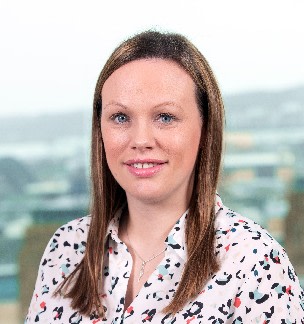

Grandfather-of-Two ‘Needed Stem Cell Transplant To Survive’
A County Durham man who has endured extensive hospital treatment and a stem cell transplant in his battle with blood cancer is marking Rare Disease Day by speaking out about the devastating impact of the condition.
Sean Kennedy, 60, from Billingham, started to develop symptoms including abdominal pain and fatigue in 2012 and he was subsequently diagnosed with a myelodysplastic syndrome – also known as MDS. A rare blood cancer, the condition prevents sufferers from producing enough healthy blood cells.
MDS has had a significant impact on the grandfather-of-two’s life and he ultimately needed a stem cell transplant in 2019 after he was told his condition was critical. He is now in remission and has regular monitoring.
Workplace illness lawyers investigate after rare blood cancer diagnosis
Sean has instructed legal experts at Irwin Mitchell to investigate whether his cancer could be linked to exposure to a type of chemical called benzene during his former job on-board a seismic research vessel tracing oil and gas under the sea bed.
With investigations ongoing Sean, who is married to childhood sweetheart, Jan, 59, has joined forces with his legal team to raise awareness of his condition and the difficulties that he has faced.
Expert Opinion
“Exposure to harmful chemicals such as benzene can lead to debilitating and life-threatening diseases. We’re now supporting Sean to provide him with the answers he deserves regarding how he contracted cancer.
“Sean and his family have been on an incredibly difficult journey over the past few years and he has bravely fought this rare condition at every turn.
“It’s been fantastic to see his health improve and we hope Sean is able to push forward and enjoy life. However, we also felt it was important to speak out about MDS and highlight the impact that it can have.
“Rare Disease Day is the ideal time to do that and we hope that this leads to a greater understanding of the condition.” Emma Bell - Legal Director
Myelodysplastic syndrome: Sean's story
Sean, who now co-owns a micro-pub, has suffered a wide range of symptoms because of MDS. He thanked Jan, and their daughter, Claire, 36, for their help and support since his diagnosis.
The grandfather-of-two said: “MDS lowers your immune system, so there were a whole host of consequences. I developed large mouth ulcers, while I also suffered with fatigue. I was also admitted to hospital on several occasions as I’ve been more prone to infections due to the condition.
“In 2019, I was told my condition had become critical and that I needed a stem cell transplant. I fortunately got a match from a worldwide database and had the procedure in October that year. Beforehand, I needed chemotherapy and that was incredibly difficult. It has just been a really intense battle.”
Sean understands that the transplant was successful and his MDS is in remission. His condition is now being monitored.
He said: “I’m over the moon about the transplant, particularly as it was difficult being told that I only had months to live. While my energy levels are still low, I’m more active these days and that’s positive. I also get a bit of brain fog now and then, which my friends and I refer to as ‘chemo brain’.
“It’s been tough, so I’m grateful for the support I’ve had. Jan in particular has been incredible, as she has had to do so much.
Sean reveals hope for answers of cancer linked to benzene
“While I’m looking positively to the future, I wanted to speak out on this so that more people understand how this kind of illness can affect you. Its impact has been massive and it is definitely something that needs to be discussed more.
“I also feel I deserve to find out why I contracted my illness and by speaking out try and help others who may have similar illnesses.
“People shouldn’t have to suffer alone as there’s help and support out there.”
Find out more about our expertise in supporting people and families affected by workplace illnesses at our dedicated industrial disease section. Alternatively to speak to an expert contact us or call 0370 1500 100.
Rare Disease Day on 28 February aims to raise awareness of the symptoms of rare diseases and improve treatment. More information can be found on the Rare Disease Day website.


